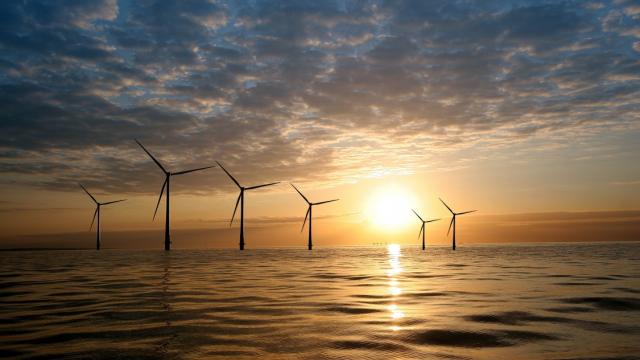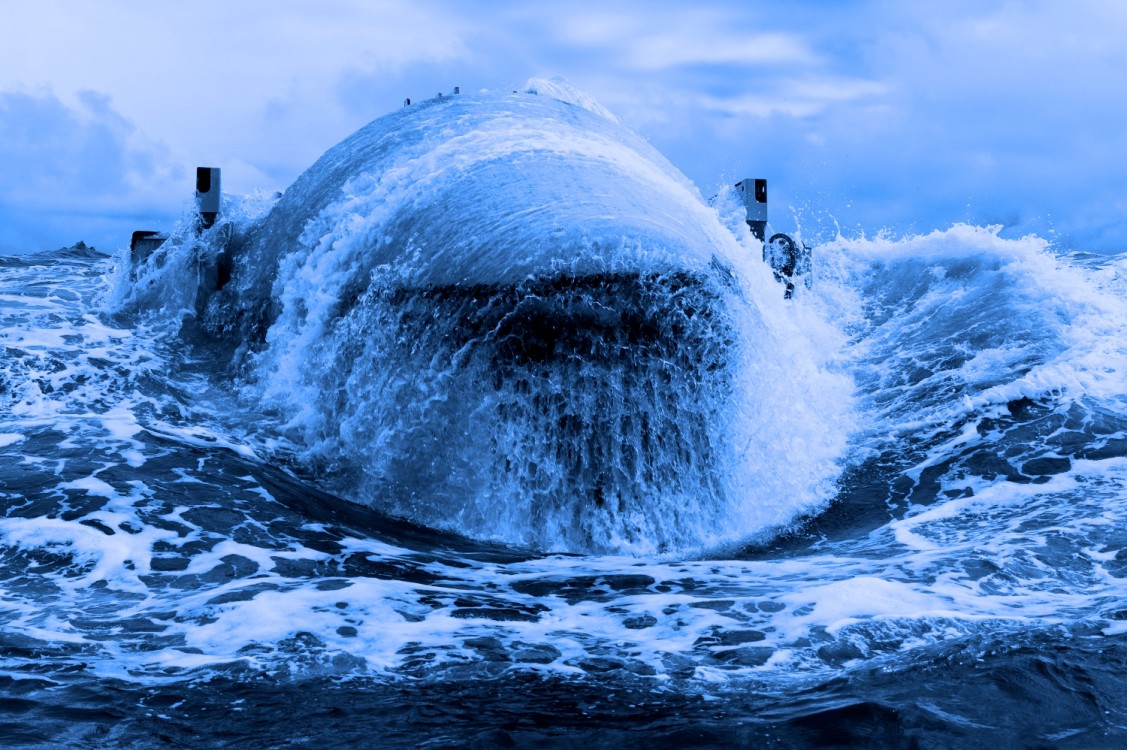
Shifting toward community-based renewable power is a thread running through Scotland's Radical Independence Campaign and part of the nation's broader goals for transformation into a greener, more just and more democratic society.
The referendum vote for Scotland to become its own country happens Thursday, Sept. 18, and three days later the worldwide People’s Climate March will call for a shift away from fossil fuels to put people and planet above profits.
Within Scotland’s radical ideas and aims is a renewable transition that interconnects with other sectors to create progressive systemic change, shining a pathway for other countries to explore as the threat of global climate catastrophe and other crises elevates the need for alternatives now more than ever.
Why Global Business As Usual Cannot Continue
The UN Intergovernmental Panel on Climate Change (IPCC) recently asserted that humanity can either make full-scale changes to address the climate crisis or face dire consequences as a species. Its latest prediction is its most severe to date, detailing how global warming will exacerbate further planetary crises such as global hunger.
The global scientific consensus is clear: climate change is already very apparent on land, sea and in the air. The fragile Arctic region is shifting fast, as Arctic researcher Dr. Tero Mustonen detailed in a conversation last year with Occupy.com. “The situation is urgent, imminent and here,” Mustonen stated.
Volatile weather was evident across 2013, as the Philippines were hit by the most violent ever typhoon over landfall, Europe’s western seaboard was ravaged by massive storms, and new heat colors were added to temperatures charts in Australia. Record breaking climate impacts are continuing in 2014, visible from California's drought to India's heavier and more-frequent-than-ever floods. The new concept of "climate change refugees" will become commonplace unless business as usual ends and a new course is charted.
Petrochemicals' impact on climate, specifically, is wreaking destruction on water and land. Nigeria and Ecuador are just two places facing a toxic legacy of oil extraction. Meanwhile, unconventional extraction methods are increasing, with deep sea drilling provoking the worst ever oil spill in the Gulf of Mexico, tar sands mining laying waste to vast tracts of Canada, and U.S. fracking poisoning groundwater from Texas to Pennsylvania.
These fossil fuel sacrifice zones will only increase unless oil dependency ends and business shifts dramatically, and quickly, toward renewable energy production. But that is not the trend we're seeing in many places, as widespread fracking enters early planning stages across Europe, the Middle East and parts of Africa. Author and journalist Chris Hedges describes these and other sacrifice zones succinctly: “Corporations are willing to poison Earth and all of its inhabitants for profit. There are no limits.”
On the question of nuclear power, the disasters at Fukushima and, decades earlier, in Chernobyl, reveal the most obvious reasons why nuclear power is not an alternative to engender a healthy planet. These are, of course, just two cases in a long line of nuclear accidents.
While the fossil fuel and nuclear industries suggest that accidents and pollution are the exception, history shows quite the contrary: they are the norm.
Another Scotland is Possible: Progressive Economics Beyond Fossil Fuels
Scotland has done more than the rest of the UK (rUK) to move away from dependence on destructive fuels. But it still lags behind many other European countries despite its massive potential to increase eco-friendly energy production. Within the Radical Independence movement, proposals to make the country reliant on renewables also complement calls to solve other social justice issues – including resetting the economy.
The Common Weal document, a Scottish version of the Nordic model of sustainability, promotes community and locally owned wind farms as a central part of its progressive energy agenda. The movement suggests these energy sources could diversify the economy away from its current dependence on finance, oil and gas, and boom-and-bust housing prices.
Specifically, the Common Weal plan recommends that small businesses, cooperatives and public bodies recalibrate their products and output. Old shipyards now derelict are being set aside as places that could be both utilized and, literally, re-energized. Renewable diversification of the economy is celebrated also for its potential to provide meaningful work that is both skilled and well paid. Globally there is a worldwide shortage of this type of employment, and the Radical Independence camp wants to help lead the change.
“Strategies such as these can capture the full economic benefit of a great Scottish natural resource, increase energy security, diversify employment away from declining industry sectors, create new and dynamic industry sectors with major export potential and fund public services,” the document summarizes.
This economic diversification model fits into Scotland's broader call to rethink the role of finance, as discussed both in Common Weal and within the wider Radical Independence Campaign. Instead of supporting financial investment for investment's sake, the referendum campaign has brought into focus the more profound question: What is investment for?
Ending Resource Wars and Scrapping WMD
Another pillar of the Radical Independence Campaign calls for a move away from destructive activities involving the production and sales of armaments, nuclear weapons and other military-industrial industries that serve the interests of wars, which are increasingly being waged to secure access to natural resources.
The military-industrial complex is often justified as a jobs creator. Increasing renewable energy output, however, undercuts this argument. Engineers who develop technology for bombs could spark breakthroughs in offshore hydropower, for instance. The military spending and arms subsidies currently spent on the weapons industry could pay for this shift. In the case of Scotland, the country could use its share of the £100 billion earmarked for UK's nuclear weapon program to further the energy transition.
On a broader ideological level, much of the talk involving Scottish independence has focused on disengaging from resource-based wars altogether. Greater energy self sufficiency for Scotland – and other countries that pursue its plan – would help re-make relationships with the developing world. By the Radical Independence Campaign's logic, a nation that produces its own clean power will no longer need to secure its "national interests," ie oil and other fossil fuel resources, down the barrel of a gun.
Engendering Participatory Democracy
As the referendum debate enters its final hours before the Thursday vote, it also stirring widespread participation and interest in an independent Scotland whose politics are based on a participatory form of democracy.
Moving toward greater use of renewable energy, argue Independence advocates, will further reduce the power of big oil to influence politics, returning greater power into the hands of the people. In the business as usual model, fossil fuel companies grow exponentially richer and, simultaneously, use their increasing profits to lobby, buy PR and control the media waves to further their interests. Senior oil men frequently hold government positions or work to regulate their own industry – seen most explicitly of late in the UK fracking industry and its toxic impacts on democratic decision making.
An Ecological Global Bailout
By settling on a pathway to end fossil fuel dependency – catalyzed by more participatory democracy and a shift away from destructive economics and war – Scotland has the potential to inspire other countries to get off their own fossil fuel addiction. Meanwhile, global inequality and poverty would be seriously reduced were power generation to favor people and the planet over corporations and their profits.
The scale of the shift to a progressive renewables model is perhaps on the scale of the 2008-9 bank bailouts and post-crash response. Following the radical case set forth by the Scottish independence movement, instead of exacerbating financial inequality while impoverishing and debt-burdening masses of humanity, the new country's response could instead start to rescue the planetary ecosystem and transform social production.
If voters side with the Scotland Yes campaign, and believe that Another Scotland is possible, maybe another world is possible, too.
3 WAYS TO SHOW YOUR SUPPORT
- Log in to post comments
















